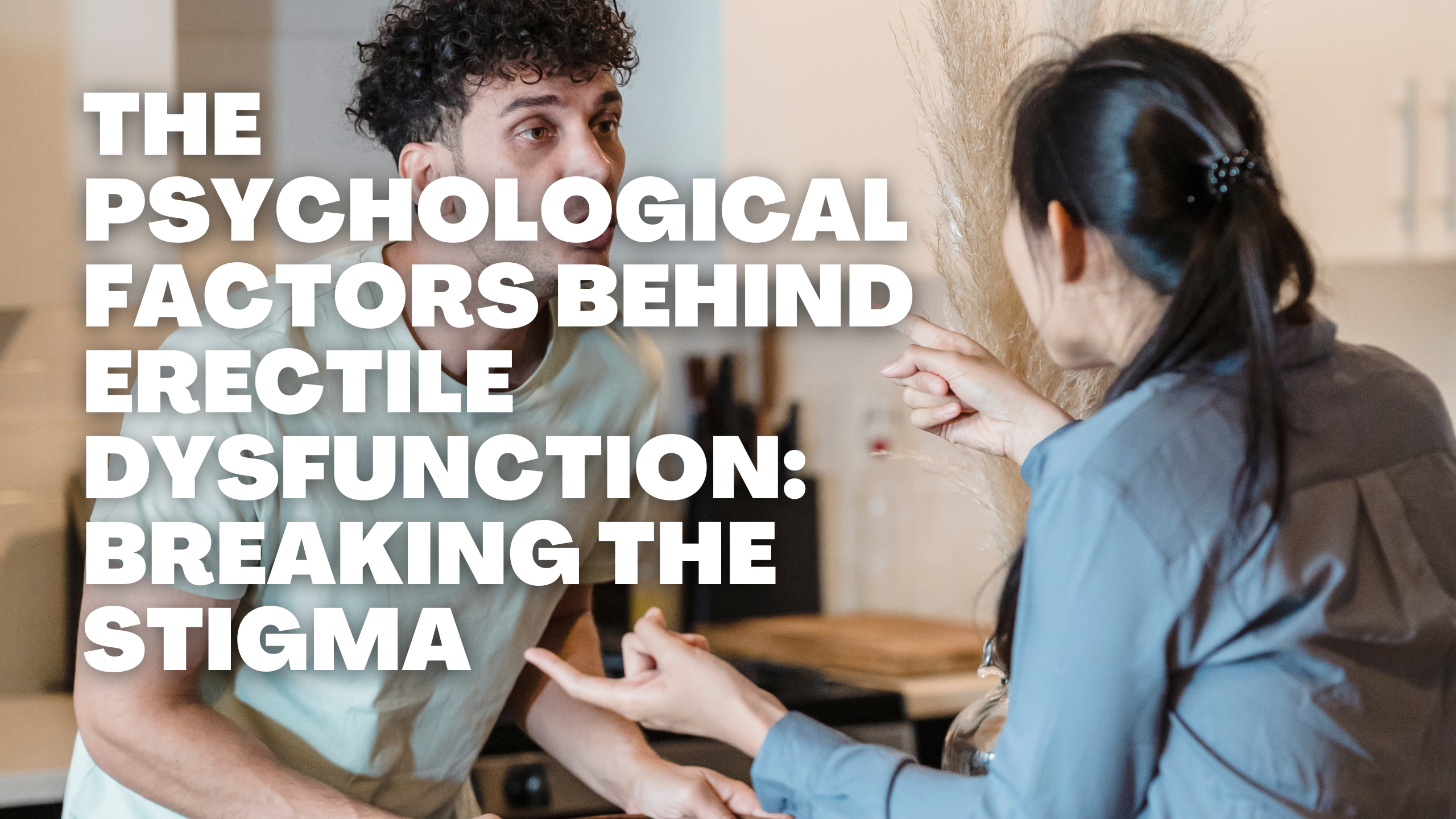Introduction
Erectile dysfunction (ED), commonly known as impotence, is a condition where a man struggles to achieve or maintain an erection sufficient for sexual intercourse. While physical factors like cardiovascular issues or hormonal imbalances can contribute to ED, it's essential not to overlook the significant role that psychological factors play in this condition. Stress, anxiety, and relationship issues can all have a profound impact on a man's ability to achieve and maintain an erection. In this article, we'll delve into the emotional and psychological aspects of ED, offering insights into the causes and effects of these factors, and providing tips and strategies for addressing them while also emphasizing the importance of seeking professional help when needed.
 |
| The Psychological Factors Behind Erectile Dysfunction: Breaking the Stigma |
The Psychological Factors
1. Stress and Anxiety:
High-stress levels and anxiety can wreak havoc on sexual function. The body's "fight or flight" response, triggered by stress and anxiety, can divert blood flow away from the genitals, making it difficult to achieve an erection. Performance anxiety, in particular, can create a vicious cycle where fear of ED leads to ED itself.
-Tip:
Practice stress-reduction techniques such as deep breathing, meditation, or yoga. Open communication with your partner can also alleviate performance anxiety.
2.Relationship Issues:
Emotional intimacy and sexual function are deeply interconnected. Relationship problems, such as communication issues, lack of emotional connection, or unresolved conflicts, can lead to ED.
- **Tip**: Seek couples counseling or therapy to address relationship issues and improve communication. Strengthening emotional bonds can have a positive impact on sexual function.
3. Depression:
Depression can significantly affect a man's libido and ability to achieve an erection. The feeling of hopelessness and sadness can make sex seem unimportant or unenjoyable.
- Tip:
It's crucial to seek help from a mental health professional to manage depression. Therapy, medication, or a combination of both can help improve mood and sexual function.
4. Body Image and Self-esteem:
Negative body image and low self-esteem can contribute to ED. Feeling unattractive or insecure about one's body can lead to performance issues.
- Tip:
Building self-confidence and addressing body image concerns can be achieved through therapy, exercise, and healthy lifestyle changes.
5. Past Trauma:
Traumatic experiences, especially those related to sexual abuse or assault, can have long-lasting effects on a person's sexual function.
- Tip:
Trauma therapy and counseling can help individuals work through past traumatic experiences and their impact on sexual health.
Seeking Professional Help
While the tips and strategies mentioned above can be helpful, it's essential to acknowledge that seeking professional help is a vital step in addressing psychological factors contributing to ED. Here's why:
1. **Specialized Treatment**: Mental health professionals and sex therapists have the expertise to address the specific psychological issues that may be causing ED.
2. **Medication**: In some cases, medication or therapies like Cognitive-Behavioral Therapy (CBT) may be necessary to treat underlying psychological factors.
3. **Holistic Approach**: Professional help can provide a more comprehensive approach to addressing ED, taking into account both physical and psychological factors.
Breaking the Stigma
One of the most significant barriers to addressing the psychological aspects of ED is the stigma attached to it. Men often feel embarrassed or emasculated when facing ED, which can prevent them from seeking help. Breaking this stigma involves:
1. Open Communication:
Talk openly with your partner about your feelings and concerns regarding ED. A supportive and understanding partner can make a world of difference.
2. Educate and Normalize:
Understanding that ED is a common issue for many men can help reduce shame and stigma. Seek information and share it with friends and loved ones.
3. Professional Support:
Encourage men to seek professional help without judgment. Normalize the idea that seeking therapy or counseling is a positive step toward improving overall well-being.
Conclusion
Erectile dysfunction is a complex condition with various underlying causes, including psychological factors. By addressing stress, anxiety, relationship issues, and other emotional concerns, men can take significant steps toward improving their sexual function. Breaking the stigma associated with ED and seeking professional help when needed are essential components of overcoming this condition and enhancing overall quality of life. Remember, you're not alone, and there's no shame in seeking help to reclaim your sexual health and overall well-being.

















0 Comments